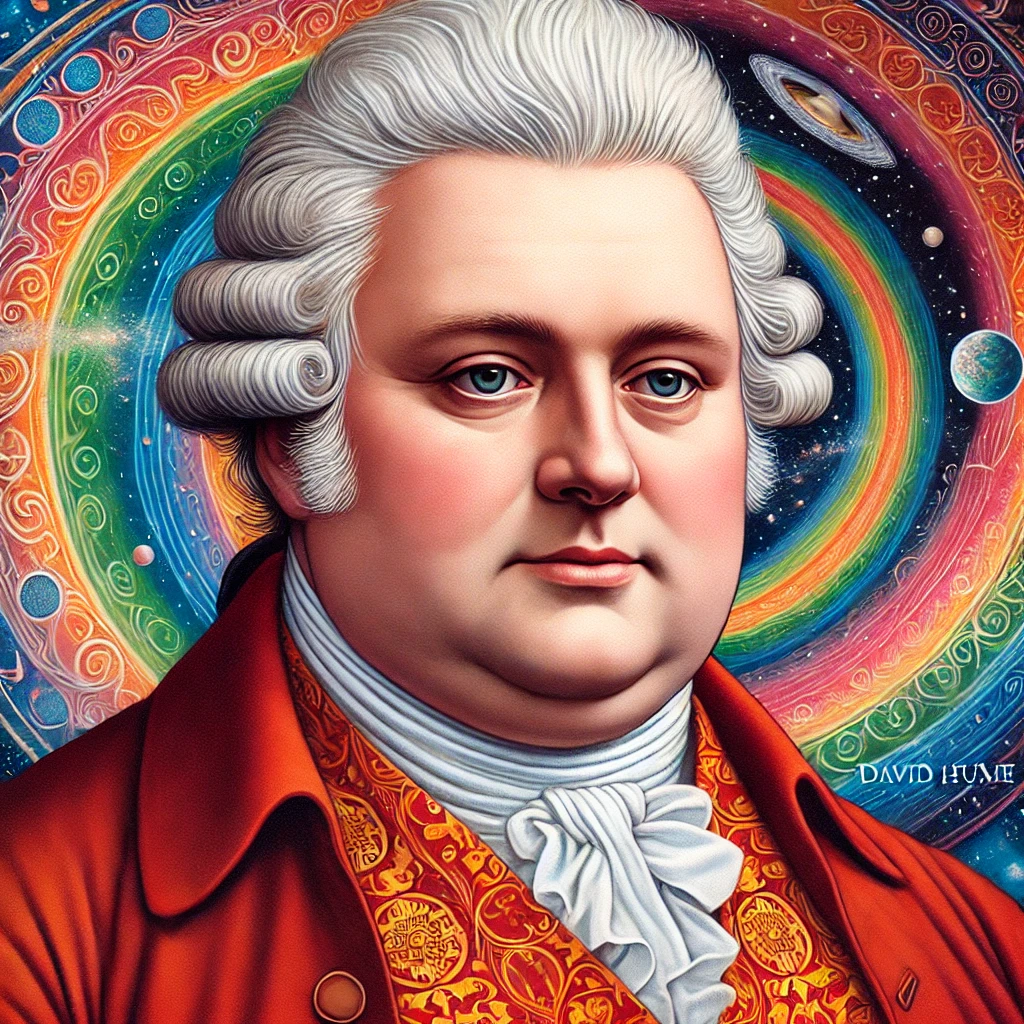David Hume

Birth Date: 1711-05-07
Death Date: 1776-08-25
Place of Birth: Scotland
Place of Death: Scotland
Century: 18th
Region: Europe
"Reason is, and ought only to be the slave of the passions."
Born in Edinburgh, Scotland, Hume was a philosopher, historian, and economist. He is regarded as one of the most important figures in the Scottish Enlightenment and made significant contributions to the philosophy of human understanding, ethics, and religion. Hume is also known for his critique of religious belief and his argument that we cannot prove causality.
Hume believed that all knowledge comes from sensory experience and was skeptical of concepts like causality. He questioned whether our beliefs about cause and effect are justified and explored the limits of human understanding.
A Treatise of Human Nature: Hume explores human psychology, emphasizing the role of experience in shaping ideas and challenging the concept of innate knowledge. An Enquiry Concerning Human Understanding: Hume further develops his ideas on empiricism and skepticism, particularly regarding causality.
Hume was influenced by earlier empiricists like John Locke and George Berkeley. He was also inspired by the skepticism of the ancient philosophers, particularly Pyrrho of Elis.
Hume’s philosophy had a profound influence on later thinkers, including Immanuel Kant, who famously said that Hume awoke him from his 'dogmatic slumber.' Hume’s ideas continue to shape discussions in epistemology, ethics, and the philosophy of religion.
Hume’s skepticism about religion, particularly his argument against miracles, was highly controversial and led to him being accused of atheism. His views on causality and the limits of human understanding were also criticized by some contemporaries, who felt they undermined scientific certainty.
Immanuel Kant criticized Hume’s skepticism about causality, arguing that certain concepts, like causality, are necessary for making sense of our experiences. Many religious philosophers have also criticized Hume for his critiques of religious belief.
David Hume’s influence on philosophy is immense. His works on empiricism, skepticism, and the nature of human understanding continue to be foundational in modern philosophy. His ideas about the limits of human reason and his critiques of religion are still debated today.
Hume never married and was known for his modest and friendly demeanor. Despite his controversial ideas, he had many close friends, including Adam Smith, the father of modern economics. Hume's autobiography, 'My Own Life,' was published shortly after his death in 1776.






